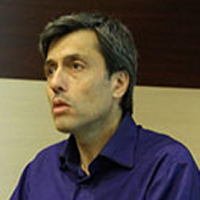The Effect of Seven Sessions of Training Program With Massed and Distributed Practice Frequency on the Acquisition of Cycling Skills in Autistic and Healthy Boy in Tehran City
Acquisition of cycling skills in autistic and healthy people has different results depending on the training conditions and type of educational intervention. Most people with autism do not learn this skill. The present study aimed to compare the effect of seven sessions of a special training program with the frequency of massed and distributed practice on the acquisition of cycling skills in autistic and healthy boys living in Tehran City.
24 autistic boys (Mean±SD age:11.92±2.55 years) and 12 healthy boys (Mean±SD age: 9.33±2.38 years) living in Tehran City were available and, based on inclusion criteria, selected and after performing a pretest of cycling skills proficiency randomly into two homogeneous subgroups with different training frequencies including massed practice (7 consecutive one-hour sessions) and distributed practice (course every other day) was divided. The exercise was performed individually on a regular bicycle without support equipment. After 7 training sessions, repeat the proficiency test as at least 30 meters of independent driving, the ability to brake, start, and turn was done. Data were analyzed using percentage calculation, dependent t-test, and analysis of covariance at the significance level of 0.05.
The results of the dependent t-test showed that the acquisition of cycling skills with massed practice in autism (0.01) and healthy (0.01) groups and distributed practice in autism (0.02) and healthy (0.00) groups, after the intervention, the educational program had a significant increase compared to the pretest. Also, the results of the analysis of covariance showed that between the effects of the group (0.106) frequency (0.063) and interaction group & frequency (0.269), there is no significant difference in skill acquisition.
Findings indicate that regardless of the lack of effect of exercise frequency and individual differences in autistic and healthy groups, the training program presented in this study led to the acquisition of cycling skills. Therefore, educators and families can be suggested to use the current program as a method with the lowest cost and highest efficiency to acquire cycling skills in autistic and healthy people.
-
Effect of cooling down through hypoxic-hypercapnia and normoxia on lactate, fatigue and recovery in elite triathletes and swimmers after an exhausting exercise
Vahid Keshavarz Taghvaei, *, Mahdi Goudarzi, Mohammad Ali Gharaat
Journal of Sport and Exercise Physiology, Summer 2025 -
Comparing the Effects of Dual-Task Training and Rhythmic Movement Training on Executive Functions in older adults with Mild Cognitive Impairment
Mehdi Zaemeni Motlagh, *, Abbas Bahram, Saeed Arsham
Scientific Journal of Rehabilitation Medicine, May-Jun 2025 -
The Effects of Different Protocols of Plyometric Exercises as PostActivation Potentiation on Power Performance in Athletes: A Systematic Review on PAP Studies
Iman Niroomand, *, Sadegh Amani
Sport Physiology, Summer 2024 -
Effect of Linearity and Teaching Games for Understanding (TGFU) on Motor Proficiency and Perceived Motor Competence in Futsal
Maryam Davoodi, Rasoul Yaali *, , Abbas Bahram
Journal of Sports Psychology,




